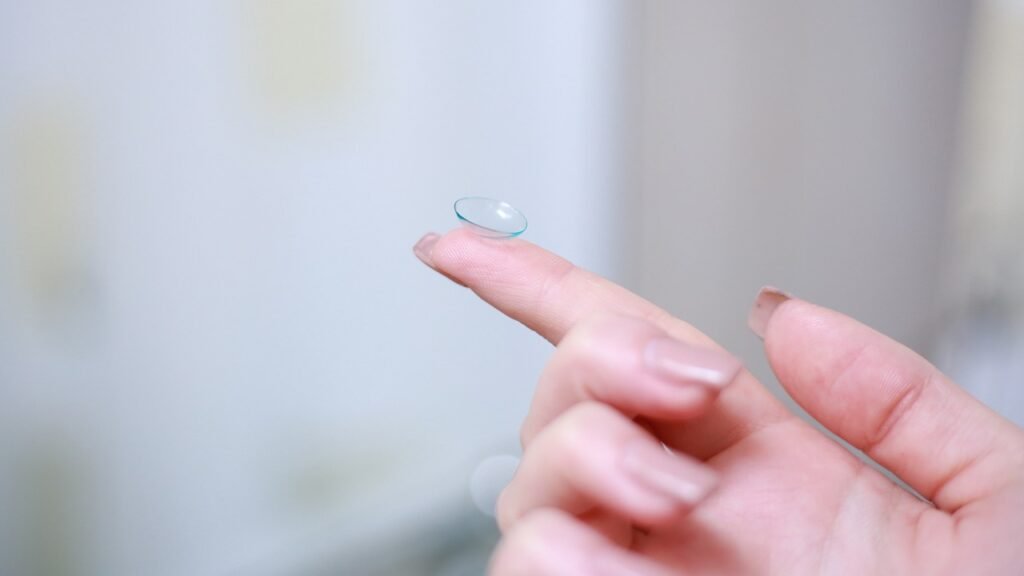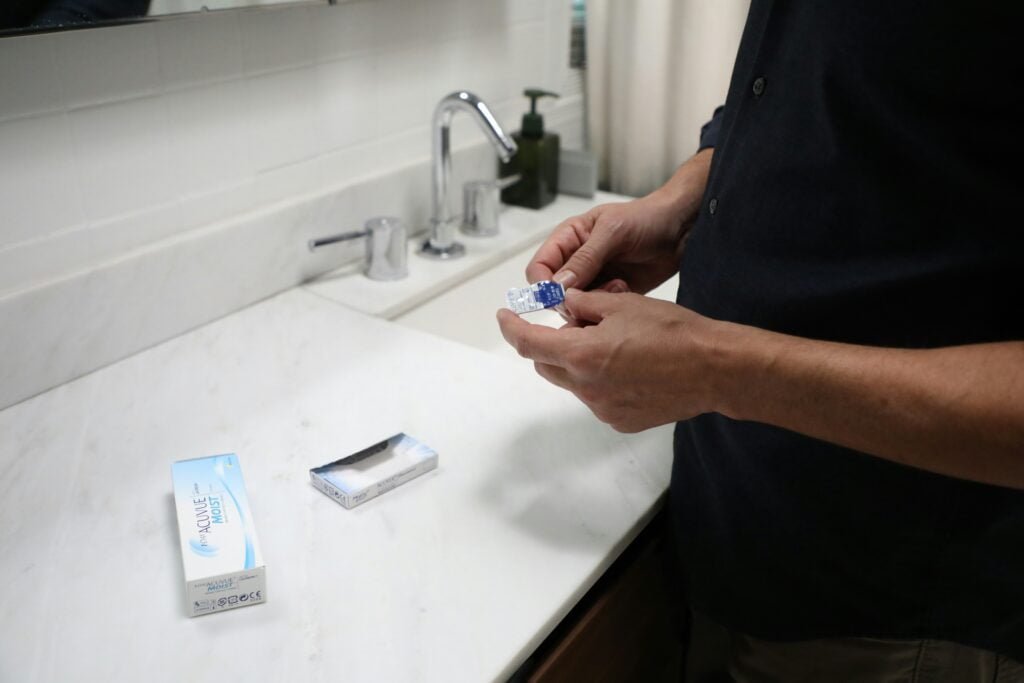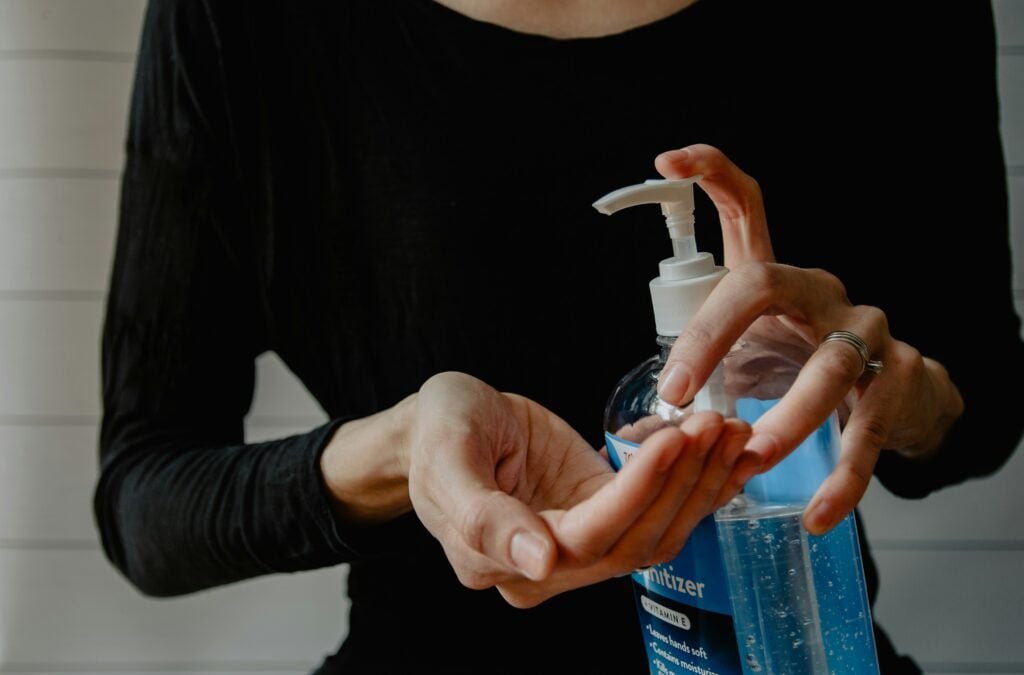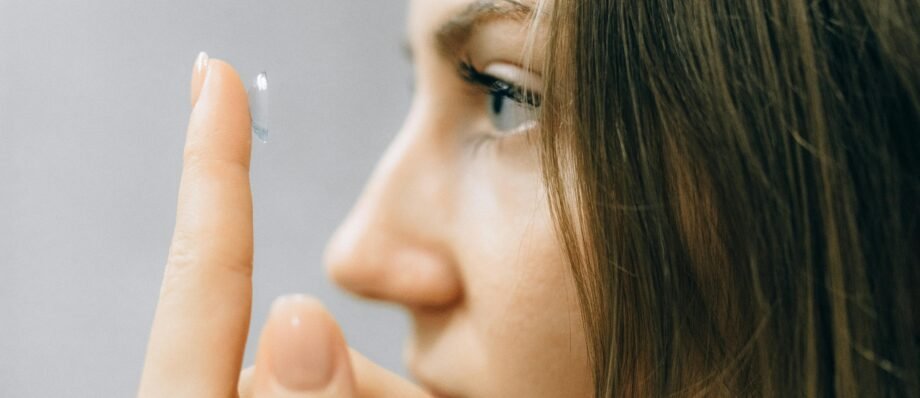Wearing contact lenses can be a convenient and effective way to correct vision. However, proper contact lens care is essential to keep your eyes healthy and avoid infections or other complications.
This guide provides everything you need to know about contact lens care, from selecting the right lenses to maintaining them correctly.
Table of Contents
- Why Proper Contact Lens Care is Important
- How to Choose the Right Contact Lens
- Daily Contact Lens Care Routine
- Weekly and Monthly Contact Lens Care
- Handling Contact Lens Problems
- Contact Lens Care While Travelling
- Myths and Facts about Contact Lens Care
- Conclusion
Why Proper Contact Lens Care is Important
Contact lenses sit directly on your eyes. This close contact means that any dirt, bacteria, or improper handling can lead to serious eye problems. Proper contact lens care helps prevent infections, reduces discomfort, and ensures that your lenses last as long as possible.
Common Problems from Poor Contact Lens Care
Proper contact lens care is essential for maintaining eye health and comfort. By following a good cleaning routine, using the right solutions, and properly handling your lenses, you can prevent common problems and enjoy clear, comfortable vision.
Infections Resulting from Poor Contact Lens Care
Bacteria, fungi, or parasites can cause eye infections.
Poor contact lens care can lead to infections. When you don’t clean your lenses properly or use them longer than recommended, bacteria, fungi, and parasites can build up on the lenses. These germs can then transfer to your eyes, causing serious infections.
Symptoms include redness, pain, and blurred vision. In severe cases, infections can damage your eyes and lead to vision loss. Always clean and store your lenses correctly to prevent infections and follow your eye care professional’s instructions.
Dry Eyes
Improper lens care can lead to discomfort and dry eyes.
Dry eyes are a common problem for contact lens wearers. If you don’t clean your lenses well or don’t use the right cleaning solution, your lenses can cause your eyes to dry out. Dry eyes make wearing lenses uncomfortable and can lead to irritation and redness.
Using rewetting drops recommended by your eye care professional can help keep your eyes moist. Proper contact lens care, including regular cleaning and using the right solutions, can prevent dry eyes and keep you comfortable.
Allergic Reactions
Dust and pollen on lenses can cause allergies.
Lenses can attract dust, pollen, and other allergens. If you don’t clean your lenses properly, these allergens can stay on the lenses and cause allergic reactions. Symptoms include itching, redness, and watery eyes.
To avoid this, clean your lenses daily with the recommended solution and replace them as advised. Proper contact lens care can help keep allergens off your lenses and prevent allergic reactions.
Corneal Abrasions from Improper Contact Lens Care
Scratches on the eye’s surface can occur from improper lens handling.
Handling your lenses roughly or with dirty hands can scratch the surface of your eye, called the cornea. These scratches, known as corneal abrasions, can be very painful and make your eye more susceptible to infections.
Symptoms include pain, redness, and sensitivity to light. To prevent corneal abrasions, always wash your hands before handling your lenses and be gentle when putting them in or taking them out. Proper contact lens care includes handling your lenses carefully to protect your eyes.
Conjunctivitis (Pink Eye)
Inflammation or infection of the eye’s outer membrane.
Conjunctivitis, also known as pink eye, can be caused by bacteria, viruses, or allergens on your contact lenses. Symptoms include redness, itching, and discharge from the eyes. If not treated, pink eye can spread and cause more severe problems.
To prevent conjunctivitis, clean your lenses thoroughly, avoid touching your eyes with dirty hands, and never share your lenses with others. Proper contact lens care can help free your eyes from infections like conjunctivitis.
How to Choose the Right Contact Lens

Choosing the right contact lenses is the first step in proper contact lens care. Different types of lenses suit different needs and lifestyles.
Here are the main types of contact lenses and their benefits.
4 Types of Contact Lenses
Choosing the right type of contact lenses depends on your vision needs, lifestyle, and personal preferences. Consult your eye care professional to determine which lenses are best for you. Proper contact lens care starts with choosing the right lenses and following the recommended care routines to keep your eyes healthy and your vision clear.
1. Soft Contact Lenses
Comfortable and flexible, it is suitable for most users.
Soft contact lenses are made of soft, flexible plastics that allow oxygen to pass through your eyes. This softness makes them very comfortable to wear. They are easy to get used to and are ideal for most people.
Soft lenses can correct various vision problems, including nearsightedness, farsightedness, and astigmatism. They come in various types, including daily wear, extended wear, and daily disposable options. For many, soft lenses are a great choice for comfortable and effective contact lens care.
2. Rigid Gas Permeable (RGP) Lenses
Durable and provides clear vision, ideal for those with specific vision issues.
RGP lenses are made of a firm, durable plastic that allows oxygen to pass through. They provide clear vision and are especially good for people with certain vision problems that soft lenses might also not correct.
These lenses are more durable than soft lenses and can last longer. While they might take some time to get used to, RGP lenses can be a good choice for effective contact lens care, especially if you need precise vision correction.
3. Extended Wear Lenses
These lenses Can be worn overnight or for an extended period.
Extended-wear lenses are designed to be worn continuously for an extended period, including overnight. Some can be worn for up to 30 days. They are made from special materials that allow a high amount of oxygen to reach your eyes, reducing the risk of complications.
However, following your eye care professional’s advice on how long you can safely wear these lenses is important. Proper contact lens care with extended-wear lenses includes regular cleaning and following the recommended wear schedule.
4. Daily Disposable Lenses
Single-use lenses that are discarded after a day.
Daily disposable lenses are single-use lenses you throw away at the end of each day. Wearing daily disposable lenses eliminates the need for cleaning and storing, making them very convenient. They are also a good option for people with allergies or those who experience discomfort with reusable lenses.
Daily, using a fresh pair of lenses reduces the risk of infections and other eye problems. Daily disposables are a great option for simple and effective contact lens care.
4 Types of Solutions for Contact Lens Care

Good contact lens care means choosing the right solutions and using them properly. By understanding the different types of solutions and their uses, you can keep your lenses and your eyes in the best possible condition.
Always use the solution recommended by your eye care professional. Avoid mixing different brands or types of solutions. Each solution is formulated differently, and mixing them can cause problems. Using the right solution ensures that your lenses stay clean, disinfected, and comfortable.
1. Multipurpose Solution
Cleans, rinses, disinfects, and stores lenses.
Multipurpose solutions are very convenient. They do several jobs in one step. You can use them to clean, rinse, disinfect, and store your lenses. This all-in-one care option makes the multipurpose solutions popular for daily contact lens care.
Rub your lenses with the solution, rinse them, and then store them in a case filled with fresh multipurpose solution. Always make sure to follow the instructions on the bottle.
2. Saline Solution
Rinses and stores lenses but does not disinfect.
Saline solution is mainly used to rinse and store contact lenses. It is not designed to clean or disinfect lenses. You can use it after cleaning your lenses with another solution to rinse off any remaining cleaner.
It’s gentle and can also be used to rinse your eyes if they feel irritated. However, don’t use saline solution alone for contact lens care.
3. Hydrogen Peroxide Solution
Provides deep cleaning but requires neutralization before use.
Hydrogen peroxide solution offers a deep clean for your lenses. It can kill more bacteria and other microorganisms than multipurpose solutions. However, it’s crucial to neutralize the hydrogen peroxide before putting your lenses in your eyes. This process usually involves a special case with a neutralizing disc or tablet.
Follow the instructions carefully to avoid burning or stinging your eyes. This solution is excellent for thorough contact lens care but requires careful handling.
4. Enzymatic Cleaners
Removes protein deposits from lenses.
Enzymatic cleaners remove protein deposits that build up on your lenses over time. These deposits can make your lenses uncomfortable and reduce your vision quality. Usually, you will use these cleaners once a week.
Add a tablet or liquid to your normal cleaning routine to deep clean your lenses. They are an important part of contact lens care for those who wear lenses long-term.
Consulting an Eye Care Professional about Contact Lens Care
Always consult an eye care professional before choosing contact lenses. They can help you determine the best lens type for your eyes and lifestyle. Regular check-ups ensure that your lenses are still the best option for you and your eyes remain healthy.
Daily Contact Lens Care Routine

A consistent daily routine is crucial for effective contact lens care. Follow these steps to keep your lenses clean and your eyes healthy.
Washing Your Hands
Always wash your hands with soap and water before handling your lenses. Dry them with a lint-free towel to avoid transferring dirt or bacteria to your lenses.
Keeping your hands clean is the first step in proper contact lens care. Use soap and warm water to wash your hands thoroughly. Make sure to scrub all parts of your hands, including between your fingers and under your nails. Rinse well to remove all soap. Dry your hands with a clean, lint-free towel. These hygiene habits prevent dirt or tiny fibers from getting on your lenses.
Cleaning Your Lenses
Proper cleaning is a key part of contact lens care. Start by placing a lens in the palm of your hand. Apply a few drops of your multipurpose solution and gently rub the lens with your finger. Even if your solution is labeled “no-rub,” rubbing your lenses gently between your fingers and then rinsing them can help remove debris. Gentle rubbing and rinsing help remove debris and deposits.
Rinse the lens thoroughly with fresh solution. Do not use old or reused solutions; they lose their disinfecting power. Never use tap water because it can introduce harmful germs to your lenses.
Storing Your Lenses
Correctly storing your lenses is essential for good contact lens care. After cleaning your lenses, place them in a clean lens case. Fill the case with fresh solution, ensuring the lenses are fully covered. Rinse your contact lens case with fresh solution daily and let it air dry. Close the case tightly to keep out dirt and bacteria.
Rinse the case with fresh solution daily and let it air dry. Replace your lens case every three months to avoid contamination.
Weekly and Monthly Contact Lens Care
Beyond daily care, some weekly and monthly tasks help maintain proper contact lens care.
Deep Cleaning
Use an enzymatic cleaner once a week to remove protein deposits from your lenses. Follow the instructions provided by your eye care professional or lens manufacturer.
Enzymatic cleaners help remove protein deposits that build up on your lenses over time. These deposits can make your lenses uncomfortable and reduce your vision quality. Using an enzymatic cleaner once a week ensures your lenses stay clear and comfortable. Follow the instructions provided with the cleaner to ensure proper use.
Lens Replacement
Adhere to the replacement schedule recommended by your eye care professional. Overusing lenses beyond their intended use can lead to discomfort and eye problems.
Replacing your lenses as scheduled is crucial for maintaining eye health. Overusing lenses can lead to discomfort, infections, and other eye problems. Your eye care professional will recommend a replacement schedule based on your lens type. Stick to this schedule for the best contact lens care.
Handling Contact Lens Problems
Even with the best contact lens care, issues can arise. Knowing how to handle these problems can prevent them from worsening.
Irritation and Redness
If you experience irritation or redness, remove your lenses immediately. Check for damage or debris. If the problem persists, consult your eye care professional.
If your eyes feel irritated or look red, take out your lenses right away. Inspect the lenses for any damage or debris. Clean them thoroughly before trying to put them back in. Contact your eye care professional for advice if the irritation or redness continues. Please do not ignore these symptoms, as they could indicate an infection or other serious issue.
Dry Eyes
Use rewetting drops recommended by your eye care professional to keep your eyes moist. If dry eyes continue, your lenses might not be the right type for you.
Dry eyes can be uncomfortable when wearing contact lenses. Rewetting drops, recommended by your eye care professional, can help keep your eyes moist. If you continue to experience dryness, you might need a different lens type. Discuss your symptoms with your eye care professional to find the best solution for your contact lens care needs.
Infection Symptoms
Symptoms like pain, blurred vision, discharge, or severe redness require immediate medical attention. Remove your lenses and contact your eye care professional promptly.
Infections can cause symptoms such as pain, blurred vision, discharge, or severe redness. Remove your lenses immediately and seek medical attention if you notice any of these signs. Delaying treatment can lead to serious complications. Proper contact lens care includes being vigilant about eye health and quickly addressing problems.
Contact Lens Care While Travelling

Traveling requires special attention to contact lens care. Pack all necessary supplies and follow these tips to keep your lenses clean and safe.
When traveling, pack everything you need for your contact lens care. Bring enough contact lens solution to last your entire trip. Packing extra lenses in case you lose or damage a pair is also a good idea. Travel-sized bottles of solution are handy and comply with airline regulations. This precaution ensures you have all you need to keep your lenses clean and safe while on the go.
Keeping your hands clean is crucial, especially when traveling. Use hand sanitizer if you can’t wash your hands with soap and water. Avoid handling your lenses in dirty or unhygienic places to prevent introducing bacteria to your eyes.
Myths and Facts about Contact Lens Care
Understanding the truth behind common myths can improve your contact lens care. Here are some common myths and the facts that dispel them.
Myth 1: It’s Safe to Swim with Contact Lenses
Fact: Swimming with contact lenses can expose your eyes to bacteria and chemicals, leading to infections. Always remove lenses before swimming.
Water can carry harmful germs to your eyes when you swim with contact lenses. These germs can cause serious infections. Pools and natural waters like lakes or oceans have bacteria and chemicals that can get trapped under your lenses.
Swimming in chlorinated pools is risky because chlorine doesn’t kill all bacteria. The best contact lens care advice is to remove your lenses before swimming. If you must keep them in, use waterproof goggles to protect your eyes.
Myth 2: Sleeping with Lenses is Harmless
Fact: Sleeping with lenses increases the risk of infections and complications. Only wear lenses overnight if they are specifically designed for extended wear.
When you sleep with contact lenses that aren’t made for overnight use, your eyes can’t get enough oxygen. Sleeping with contact lenses can lead to infections and other problems. Your eyes need a break from lenses to stay healthy.
Lenses designed for extended wear are safer, but it’s still important to follow your eye care professional’s advice on how long you can wear them. Avoid sleeping with your lenses unless your doctor says it’s okay for the best contact lens care.
Myth 3: Tap Water is Safe for Cleaning Lenses
Fact: Tap water can contain harmful microorganisms. Always use a sterile contact lens solution.
Tap water might seem clean, but it can contain tiny organisms that are bad for your eyes. These microorganisms can stick to your lenses and cause infections. Using tap water to rinse or store your lenses is not safe.
Always use a sterile contact lens solution to clean and store your lenses. This hygiene habit ensures your lenses are free from harmful bacteria and germs. Good contact lens care means using the right products to keep your lenses clean and safe.
Myth 4: It’s Okay to Share Lenses
Fact: Sharing lenses can spread infections. Never share your contact lenses with others.
Sharing contact lenses, even briefly, can spread germs and infections between users. Each person has different bacteria on their eyes and hands. When you share lenses, you also share these bacteria, which can lead to eye infections. Additionally, lenses are fitted specifically for your eyes.
Someone else’s lenses might not fit you correctly, causing discomfort or damage. The best contact lens care practice is never sharing your lenses with anyone else. Keep your lenses to yourself to protect your eye health.
Conclusion
Proper contact lens care is essential for maintaining eye health and comfort. Following the guidelines outlined in this complete guide, you can enjoy clear vision and avoid complications.
Always consult your eye care professional for personalized advice and stay informed about the latest advancements in contact lens technology. Prioritizing contact lens care will keep your eyes healthy and your vision sharp.


